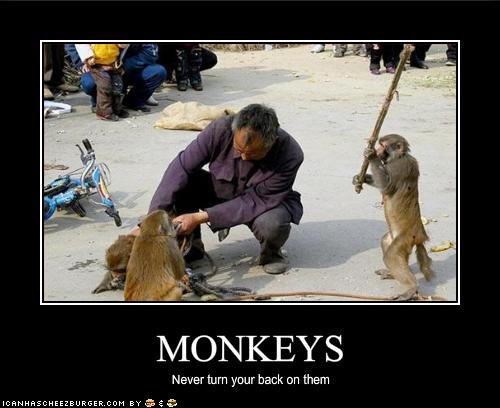
When I was in Norway, one of the local television stations constantly played reruns of Ricky Lake and Jerry Springer. I used to wonder what kind of image of our country these clowns created. They were bad enough, but now we have a whole slew of reality shows. They show unattractive people being venal and selfish. We live here and we have a wide variety of other impressions. But I was imagining if I was to see something like “Bridezillas” w/o other context I might not want anything to do with the culture that produces such monstrosities.
Americans are no more venal than people in other countries and our television shows are really no worse than other. For example, the Dutch invented many of the reality shows, like “Big Brother.” But most of these offerings don’t get distributed around the world. The Brits seems to have developed the perfect television PR. I have been to the UK and seen some of what they watch back home. It is not very uplifting. Yet in the U.S. and around the world, we get “Masterpiece Theatre.”
I am not the only one to worry about the coarsening of America. I don’t know how much television is reflecting changes in America and how much it is driving them. I also am not sure of how people are looking the programs. When I see people being selfish and demanding to be covered in bling, I look down on them. Everybody needs somebody to look down on and the low-lives on reality TV provide an outlet.
There is an old saying that the bad man is a lesson for the good. You can see what not to do.
But are negative role models enough? Are they really seen as negative? A lot of the bad people get what they want by being aggressive. Maybe some people see that as good thing.
We should not underestimate the power of television. Advertisers understand that a fifteen or thirty minute commercial can sell a product. Maybe a thirty minute or an hour program can sell a lifestyle. I watched a lot of television when I was a kid and I know that I consciously modeled some of the behavior and habits of some of the television characters. It sometimes surprises me today when I watch an old show and see one of my traits in embryonic form. Maybe I was just more impressionable than most kids, but I don’t think so. I hear too many stories, jokes and tag lines from movies.
Television characters help define the boundaries of what is acceptable. For example, when did it become acceptable to call women “bitches,” much less use the word on TV? But both things are now common. How is it that the “poor” people on reality TV can afford and think they deserve fancy cars and jewelry?
I grew up on science fiction and westerns. Both were common when I was a kid. They were actually very similar. “Star Trek”, for example, was a lot like “Wagon Train.” They travel through unexplored territories meeting strange people, with whom they alternatively cooperate and conflict. And they all were morality plays, very simple and clear. They seem very naive today, but they are certainly no more simplistic than “Bridezillas” and they have a better purpose.
I have to stipulate, however, that television has generally improved. The production values as well as the complexity of programs are much better than they used to be. In addition, we have many fine productions on history, science and human affairs. But this is a result of a general widening of offerings. There is much more choice now. You can choose to watch well produced dramas (like Law & Order), good news programs (Newshour on PBS), technology (Modern Marvels) or any of the great variety of history programs. Or you can watch crap all day and night.
Choice is enhanced (exacerbated) by the ability to time shift and save programs. At one time television united the country. We watched the same things at the same times and that made us more similar. Most Americans watched the evening news with Walter Cronkite. Half the country tuned into the final episode of “The Fugitive.” Now we all watch different things at different times. I suppose that will make us all more different. Unequal inputs produce unequal results.
